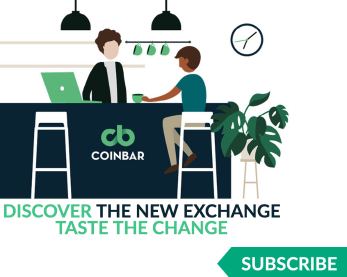The BlockChain platform is ready to welcome a “restructuring” of the tax system, digitizing accounting operations and making transactions safe as a real world ledger, unalterable and controlled by all of us. Laura Cappello, Tech Lawyer specialized in Legal Engineering and Blockchain, is convinced of this. Let’s summarize his concepts expressed on Linkedin
A long time ago, when institutions didn’t exist, taxes didn’t exist either. The human being later introduced the concept of tax as a non-physical contribution to the community, or a counter-value in money, that is, when with the progress of civilization the numbers have increased and, consequently, the methods of management have changed.
We have been forced to delegate the accounting and management of mutual funds to others to take care of our daily life. We have also decided that these funds are created through percentages on individual income and according to the size of production. These percentages are somewhat mysterious because if we assumed a year zero, we would actually have to calculate income and expenses, and calibrate a request for a contribution a priori and then at the end of the year make a final statement, repaying what has not been spent. The failure of this (worldwide) system is patently explainable. The contribution percentage is no longer based on a real need, calculated and precisely accounted for but, simply on the presumption of expenditure with exponential growth of debts and consequently growth of the contribution percentage.
Taxes are a centralized system managed by a few that accumulate in a single container the coins that we all put as a percentage of our income.
We are no longer able to find, in the physical world, the correspondence between what we contribute and what we need. We complain that we want less taxes but we forget that we impose them on ourselves and sometimes don’t want to pay them.
The BlockChain guarantees us the inalterability of the data. It also allows us to monitor all new data blocks inserted into it, with the replication distributed across all of our computers. There is no central entity that protects or maintains or acts as a container. We ourselves, as a community, are the managers, controllers and executors. With the result that we can finally trust each other and not delegate to a few the responsibility with the burden and duty of carrying out tasks that we cannot accomplish alone. Using the software, properly written and verified by the community, we can fulfill those tasks that are necessary for the survival of our society. By joining the platform, identifying each of us in a transparent and univocal way – as we already do with the countless platforms or in social networks – we can immediately benefit from all the potential of the BlockChain in a tax management system.
In BlockChain, our membership is shared by the whole community and from that moment we can freely take advantage of all the benefits that derive from it by trusting each other because it is the software and the rules we have pre-established that manage the interactions , exchanges and results. Everything is verified by the BlockChain, creating a “Mutual Trust” that allows the community to immediately find out the destination of funds to the right person at the right time.
This seems like a utopia because up until now there was no decentralized IT base that is certain and secure, standard and verifiable, transparent and effective. There was a lack of cohesion and collaboration. The Trust was missing. The BlockChain was missing.
Computer scientists have long adopted the p2p system (a historical example is Torrent) and have also self-regulated, making the operation of the management software publicly available (Open – MIT and CopyLeft Licenses). Anyone can consult the functioning of the software sources at the base of the platform, contributing to the solution of problems and to the control of procedures. There are no mysteries. By digitizing our movements, using the computer as the only method, for all our daily operations, we can finally establish what are the right remuneration and the right contributions for the community. BlockChain platform infact provides for a cost or “GAS” – in case of Ethereum – a variable contribution for each operation carried out. We can also call it tax, but in reality it is an automatic percentage that is part of the transaction and that varies according to supply and demand. In addition, the GAS is distributed in real time among participants and for those who actually do work for the community. And it’s traceable and verifiable by everyone.
Tracing a contribution through tokens and finding out where and when it is used, is a dream that becomes reality. Participants contribute according to needs of platform with variable percentages decided by the software. Those who produce are paid and those who use spend on GAS and part of what is produced is accumulated for everyone, by everyone. With mutual trust we can overcome our fears and return to take care of everyday life serenely. We can still run with the imagination, but reality is that BlockChain concretely helps to rearrange and reorganize aspects of life now saturated with uses, rules and bureaucracy. Since there is no longer need for a central body that manages the flow and accumulation, this method cannot be framed in either public or private sphere, becoming the system no longer either mandatory or voluntary. But automatic.



